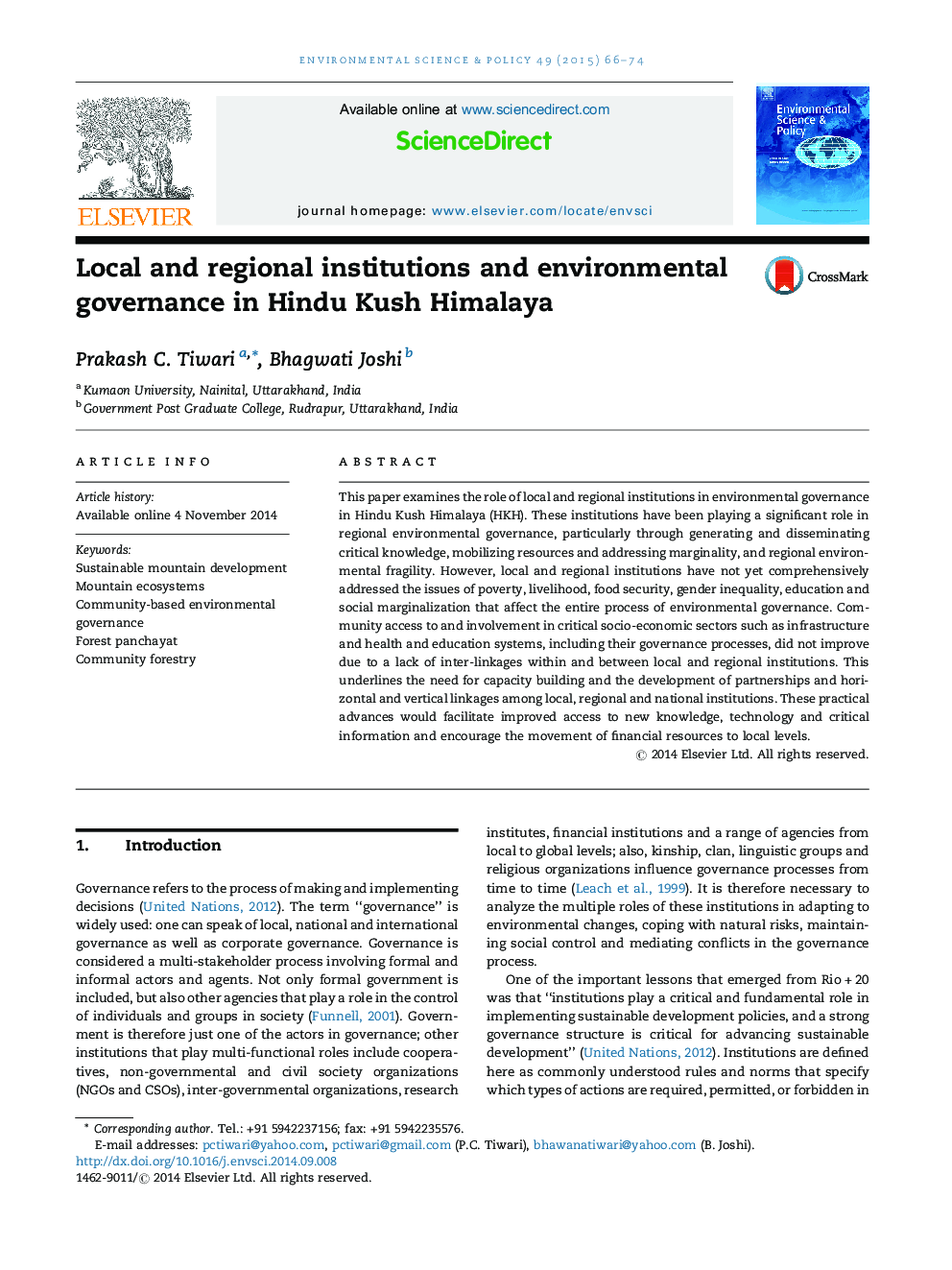| Article ID | Journal | Published Year | Pages | File Type |
|---|---|---|---|---|
| 1053520 | Environmental Science & Policy | 2015 | 9 Pages |
•Institutions are playing significant roles in environmental governance in HKH.•But, institutions lack articulation, access, social inclusion and equity.•Horizontal as well as vertical partnership among institutions is imperative.•Local institutions need to become more responsive and people-centered.•Local institutions need to strengthen through capacity building.
This paper examines the role of local and regional institutions in environmental governance in Hindu Kush Himalaya (HKH). These institutions have been playing a significant role in regional environmental governance, particularly through generating and disseminating critical knowledge, mobilizing resources and addressing marginality, and regional environmental fragility. However, local and regional institutions have not yet comprehensively addressed the issues of poverty, livelihood, food security, gender inequality, education and social marginalization that affect the entire process of environmental governance. Community access to and involvement in critical socio-economic sectors such as infrastructure and health and education systems, including their governance processes, did not improve due to a lack of inter-linkages within and between local and regional institutions. This underlines the need for capacity building and the development of partnerships and horizontal and vertical linkages among local, regional and national institutions. These practical advances would facilitate improved access to new knowledge, technology and critical information and encourage the movement of financial resources to local levels.
Graphical abstractFigure optionsDownload full-size imageDownload as PowerPoint slide
